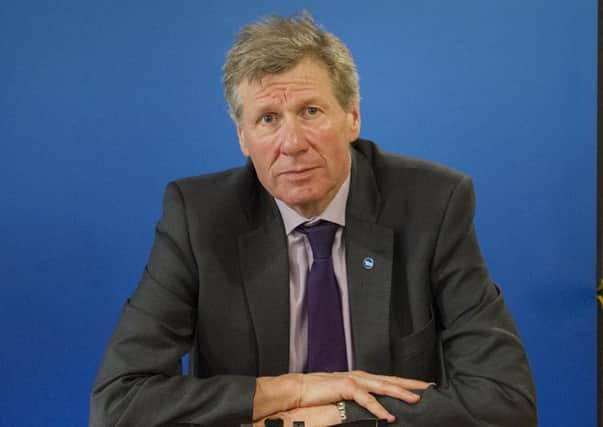Comment: UN asked for corroboration intervention


But while the issue of armed police on our streets has grabbed all the headlines of late, the SHRC has also raised with the UN a matter which has perhaps even greater importance to our justice system: the risk to corroboration.
The principle of corroboration, which requires two independent pieces of evidence to bring a case to trial, is under threat as a result of the Criminal Justice (Scotland) Bill, which is making its way through the Scottish Parliament.
Advertisement
Hide AdAdvertisement
Hide AdEarlier this year justice secretary Kenny MacAskill won plaudits after announcing plans to postpone passage of the legislation until after the independence referendum.
But with opposition from the likes of former High Court judge Lord McCluskey, the matter will be no less contentious when revisited next year.
Corroboration appeared on a “list of issues” the SHRC submitted to the UN last week as part of an effort to make sure the UK adheres to the International Covenant on Civil and Political Rights.
The SHRC called on the UN’s Human Rights Committee to ask what safeguards will be put in place, should corroboration be removed.
Its submission states: “The Scottish Government is currently considering the law of evidence in Scotland with the intention of removing the need for corroboration of evidence. It is the duty of the courts to ensure that a fair trial is achieved in any given case. Courts must therefore be in a position, as a matter of domestic law, to ensure the trial is fair and that convictions are based on evidence of sufficient quality.”
While scrapping corroboration has its supporters, most notably Lord Advocate Frank Mulholland, some of the criticism of the plans has been fierce.
In a letter to the Scottish Parliament’s justice committee earlier this year, Lord McCluskey said removing the need for evidence from two sources would put too much faith in “flawed police practices”, discarding the “slow, considered judgment of centuries of judges”.
For his part, the lord advocate believes removing corroboration will help bring more rapists and domestic abusers to justice.
Advertisement
Hide AdAdvertisement
Hide AdA review group led by Lord Bonomy, which will look at safeguards against miscarriages of justice, is expected to report back early next year.
It remains to be seen whether there will be a high-level intervention from the UN before then.